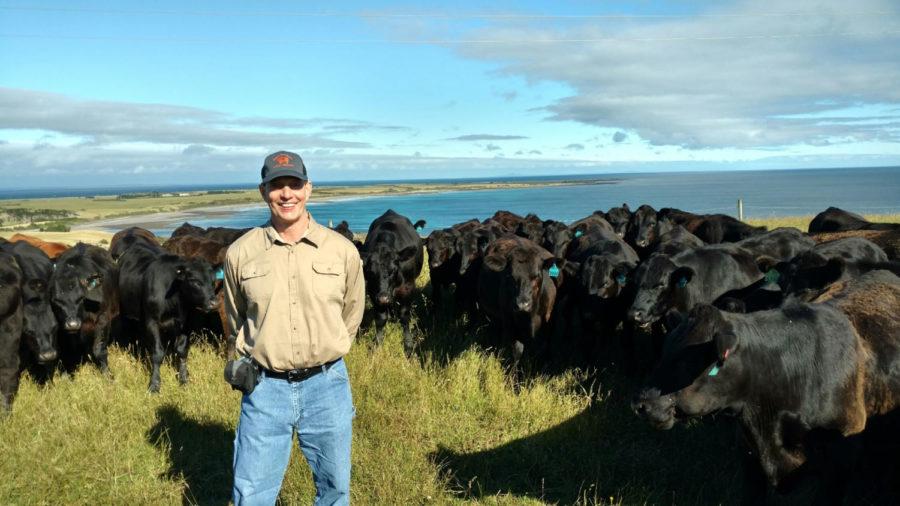Iowa State alumnus’ research to improve cattle farming methods
Jack Block graduated from Iowa State in 1979. He now spends his time researching different cattle farming methods.
January 31, 2017
Sprawling volcanic mountain landscapes, endless beaches and a home to hundreds of hatching penguins.
These are some of the many characteristics that define the land of Tasmania, an island located off the coast of Australia. It is an area mostly untouched by the hustle and bustle of modern living. The island state, however, may soon become more popularly known for a product recognized by many Iowans — the raising and butchering of cattle.
Though not nationally known, one Iowa State alumnus claimed that ventures to the land down under have revealed a new method of cattle raising not yet embraced by Western farmers and consumer palettes.
Jack Block, a 1979 Iowa State graduate, has traveled the world as a food salesman, helping businesses grow their products and gaining consumer trust. Recently returning from Tasmania on a business trip, Block was introduced to a new concept of farming and meat inspection that he hopes will catch on in the United States.
Unlike many of the cattle farms in the Midwest, where animals are kept in tight pens and unable to move freely, Block said cattle in Tasmania roam freely across hundreds of acres of farmland. This freedom, combined with the low temperatures of Tasmania — consistently ranging from 40 to 75 degrees year-round — create what Block called the most consistent grass-fed beef in the world.
“When I asked the rancher in Tasmania what differentiated grass-fed beef here from say beef in Alabama or Kentucky, he told me, ‘They just aren’t consistent,’” Block said.
Block said consistency is the main source for the high-quality beef. Because of Tasmania’s rigorous meat grading system, one that is similar to America’s grain-fed beef system but not as complex, meat is able to constantly remain at a high standard.
The system takes into account meat and rib color, ossification levels and pH balances to create an organic product that is free of hormones.
“When I show my friends back home the pictures of the fat found within the Tasmanian grass-fed steaks, they can’t believe the white color,” Block said. ”That’s how you know you have good meat, when the fat is that bright, and the marbling is just beautiful.”
Block recalled his time in the country, citing the unusually high happiness of the farm animals. Cows would consistently run to be loaded onto trucks moving from one farm to the next based on their freedom to roam the open landscape.
Excited about the opportunity to bring Tasmanian beef and the Tasmanian system of beef grading to the Midwest, Block sees the health benefits of the meat as being a high selling point to consumers.
Because the Tasmanian cattle raising system is more consistent and steroids are kept out of the animals’ bodies, consumers can experience benefits such as higher omega-3s present within the beef, Block said.
Because of Block’s ties with the Midwest and having grown up in Iowa his entire life, he hopes to bring his discoveries to local vendors within the state before venturing toward the coasts.
But because of the higher cost of producing the meat, he sees education as the biggest barrier to entry for Midwestern families purchasing Tasmanian steaks.
“People in the East Coast are clamoring for a product like this because they are so health conscious and it’s already in places like Whole Foods,” Block said.”I feel we have very smart people in Ames, Iowa, so I just need to educate them on the benefits of this beef and we can get something started.”
Part of Block’s educational process hopes to incorporate ear tags found on cattle in Tasmania. Containing small informational chips within the tags, information such as age, health and location of a cow can be accessed instantly.
Using this provided insight, Block hopes that every family purchasing beef can have peace of mind knowing when and where their food was packaged.
Eager to get the ball rolling, Block plans to bring his findings to members of the Iowa State agricultural community and eventually bring Tasmanian beef to Iowa market staples such as Hy-Vee.
















